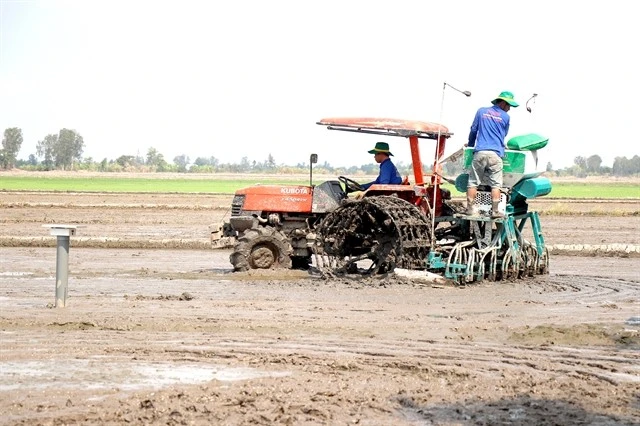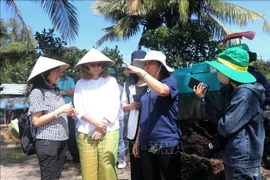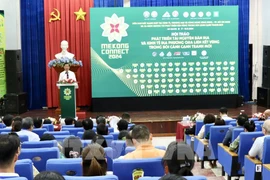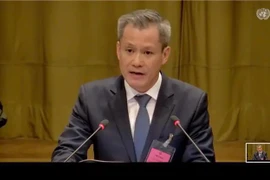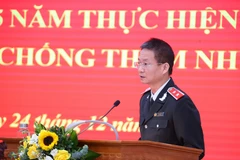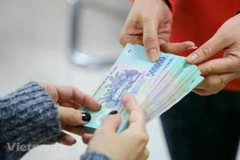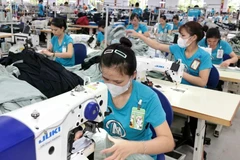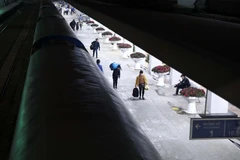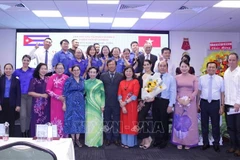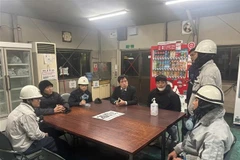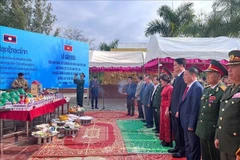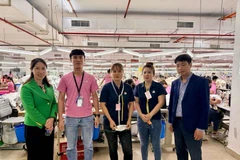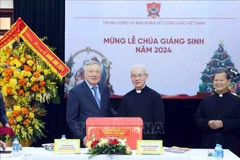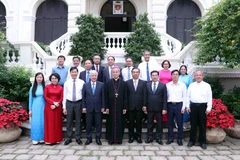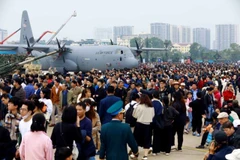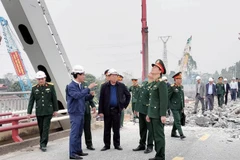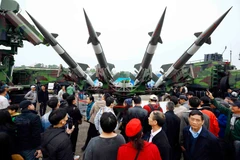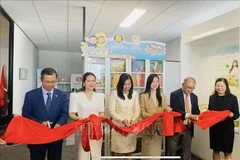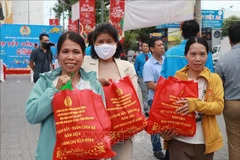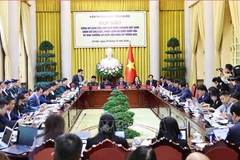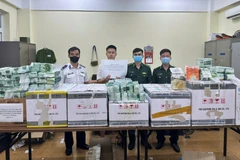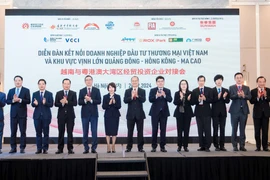Can Tho (VNS/VNA) - The transformation of agricultural production towards ecological, organic, circular and low-emission agriculture is a top priority as Vietnam seeks to meet its goal of achieving net-zero emissions by 2050, experts said.
The country’s agriculture sector not only is affected strongly by climate change but also creates a large amount of greenhouse emissions.
The sector accounted for 19% of Vietnam’s total greenhouse gas emissions in 2020, ranking second among the country’s sectors, according to the World Bank.
Rice cultivation tops the list of the agriculture sector’s greenhouse gas emissions and accounts for 48% of the agriculture sector’s greenhouse emissions, followed by animal husbandry accounting for 15.3%.
After 40 years of Vietnam’s Doi moi (Renewal), agriculture is still an important economic sector contributing to the country’s socio-economic development.
Vietnam has issued various policies to develop green agriculture such as the strategy for sustainable agriculture and rural development in 2021-2030, the action plan for methane emissions reduction by 2030. The Ministry of Agriculture and Rural Development (MARD) is implementing a project to sustainably develop one million hectares of high-quality and low-emission rice cultivation associated with green growth in the Mekong Delta by 2030 (a 1-million-hectare low-emission rice field project).
These policies have created positive changes for the agriculture sector in the Mekong Delta and the country.
Speaking at the forum “Building a sustainable agriculture ecosystem towards the goal of Net Zero by 2050” held in Can Tho on December 19, Tran Viet Truong, Chairman of the Can Tho People’s Committee, said that, to achieve the goal of net zero emissions, close co-operation among governments at all levels, enterprises, scientists and people is a key factor.
Can Tho is not one of localities listed in the central Government’s plan of developing organic agriculture in 2020-2030, but the city is determined to develop organic agriculture for 4,000ha of rice, 1,300ha of fruit and 150ha of vegetables, he said.
The city is cooperating closely with the International Rice Research Institute (IRRI) and relevant agencies to assist and instruct farmers participating in the 1-million-hectare low-emission rice field project, he said.
It has also guided farmers participating in the project to exploit and use rice straw under the circular agriculture model, he said.
Participants at the forum said the implementation of net-zero emission agriculture will help farmers not only utilise the use of natural resources but also improve product yield and quality.
The implementation will help trading and producing companies meet the requirement criteria for products to import markets, they said.
To Thai Thanh, General Director of Tien Thinh Group Joint Stock Company in Hau Giang province, said farmers should change their mindset toward agricultural production by reducing the use of plant protection drugs and eliminating the use of prohibited chemicals, in order to meet the requirements of import markets.
The implementation of sustainable green agriculture creates safe products and protects the health of farmers and consumers, he said.
There should be support policies for soft loans to increase the value and quality of agricultural products, he said.
Vo Tan Thanh, Deputy Chairman of the Vietnam Chamber of Commerce and Industry (VCCI), said one of breakthrough solutions to reduce greenhouse gas emissions is to apply the carbon credit model.
The model not only is a tool to boost the reduction of greenhouse gas emissions but also creates a new source of income for farmers through trading carbon credits, he said.
Huynh Kim Dinh, Deputy Director of the MARD's Department of Cooperative Economics and Rural Development, said that, to assist farmers to implement agriculture which adapts to climate change and reduces greenhouse emissions toward the net zero goal, relevant ministries and sectors should set up criteria with detailed guidance.
The application of advanced technology and the transformation of production methods in combination with carbon credit policies will be keys for Vietnam’s sustainable agriculture development, she said./.
